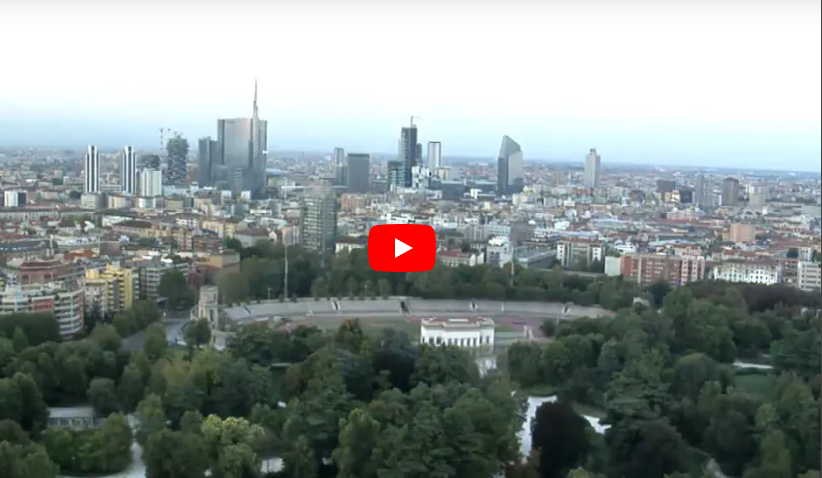Home » Session 3: Actions for Building a Sustainable Urban Food System
Sustainable Urban Food Systems and a Collaborative Initiative in Hong Kong
Session 3: Actions for Building a Sustainable Urban Food System
Actions for building sustainable urban food systems take many forms. In 2015, the Milan Municipality launched the Milan Urban Food Policy Pact (MUFPP) as an international protocol among 200+ cities committed to developing sustainable food systems. The Pact provides the below Framework of Action with a set of 37 recommended actions organised under the six broad categories (for details, please read the MUFPP text here):
Governance
1. Facilitate collaboration across city agencies and departments
2. Enhance stakeholder participation
3. Identify, map and evaluate local initiatives
4. Develop or revise urban food policies and plans
5. Develop or improve multisectoral information systems
6. Develop a disaster risk reduction strategy
Sustainable Diets and Nutrition
7. Promote sustainable diets
8. Address non-communicable diseases associated with poor diets and obesity
9. Develop sustainable dietary guidelines
10. Adapt standards and regulations to make sustainable diets and safe drinking water accessible
11. Explore regulatory and voluntary instruments
12. Encourage joint action by health and food sectors
13. Invest in and commit to achieving universal access to safe drinking water and adequate sanitation
Social and Economic Equity
14. Use cash and food transfers
15. Reorient school feeding programmes
16. Promote decent employment for all
17. Encourage and support social and solidarity economy activities
18. Promote networks and support grassroots activities
19. Promote participatory education, training and research
Food Production
20. Promote and strengthen urban and peri-urban food production
21. Seek coherence between the city and nearby rural food production
22. Apply an ecosystem approach to guide holistic and integrated land use planning and management
23. Protect and enable secure access and tenure to land
24. Help provide services to food producers in and around cities
25. Support short food chains
26. Improve (waste) water management and reuse
Food Supply and Distribution
27. Assess the flows of food to and through cities
28. Support improved food storage, processing, transport and distribution
29. Assess, review and/or strengthen food control systems
30. Review public procurement and trade policy
31. Provide policy and programme support for municipal public markets
32. Improve and expand support for infrastructure
33. Acknowledge the informal sector’s contribution
Food Waste
34. Convene food system actors to assess and monitor food loss and waste reduction
35. Raise awareness of food loss and waste
36. Collaborate with the private sector along with research, educational and community-based organisations
37. Save food by facilitating recovery and redistribution for human consumption of safe and nutritious foods
MUFPP fosters cooperation and ideas exchange among cities. It has now united over 200 signatory cities from all over the world (MUFPP, 2015). This short video introduces some examples of the signatory cities’ actions:

Below are some examples of best practices taken by different cities (Forster et al., 2015):
Governance: Toronto established the Toronto Food Policy Council in 1991 to give food policy advices for the city and foster cross-sectoral dialogues. It took part in developing the Toronto Food Strategy and released GrowTO, an urban agriculture action plan for the city which was adopted by the Toronto City Council.
Sustainable Diets and Nutrition: New York City developed the NYC Food Standards which set out nutrition criteria for city agency meetings and events, food purchased with city funds, food and beverage vending machines on city property etc. The NYC City Council also passed a bill to encourage city agencies to procure local food which has a smaller carbon footprint, a lower risk of food safety and a higher nutritional value.
Social and Economic Equity: In Athens, there are collective kitchens which engage citizens to cook and eat together, and at the same time promote food education, Greek gastronomy, and sustainable food production. Economic, social and cultural values are created in the process.
Food Production: In the Greater Toronto Region, the Golden Horseshoe Food and Farming Alliance (GHFFA) released in 2012 the “Golden Horseshoe Food and Farming Action Plan 2021”, which acts as an integrated and coordinated blueprint for growing a thriving food and farming sector in the Golden Horseshoe. GHFFA also supports Food Starter, an incubator which helps scale up early-stage food processors and manufacturers in the Golden Horseshoe.
Food Supply and Distribution: In Barcelona, a public-private initiative has renewed a number of traditional covered markets into attractive and environmentally sustainable markets that provide healthy local fresh food to the neighbourhoods.
Food Waste: France launched a national pact against food waste in 2012 and Paris therefore offers supports to concrete community projects that recover and redistribute safe and nutritious food. For example, the Paris government provided logistical and organisation support to the association “Gleaners’ tent” which collects unsold fruit and vegetables from the markets in the Joinville arrondissement every week and check their quality for redistribution.
In Session 5, the case of Milan will illustrate how a city strategically builds a sustainable food system by taking actions in all the above six categories.
Read more:
MUFPP. (2015). Milan Urban Food Policy Pact. Retrieved from https://www.milanurbanfoodpolicypact.org/wp-content/uploads/2020/12/Milan-Urban-Food-Policy-Pact-EN.pdf
Forster, T., F. Egal, A. G. Escudero, M. Dubbeling, and H. Renting, eds. (2015). Milan urban food policy pact: Selected good practices from cities. Milan: Fondazione Giangiacomo Feltrinelli. Retrieved from https://ruaf.org/document/milan-urban-food-policy-pact-selected-good-practices-from-cities/
Continue to “Session 4: International Initiatives on Sustainable Urban Food Systems”
© 2019 Centre for Civil Society and Governance at The University of Hong Kong
Except where otherwise noted, contents of this e-case is licensed under a Creative Commons Attribution-NonCommercial-ShareAlike 4.0 License.
![]()


